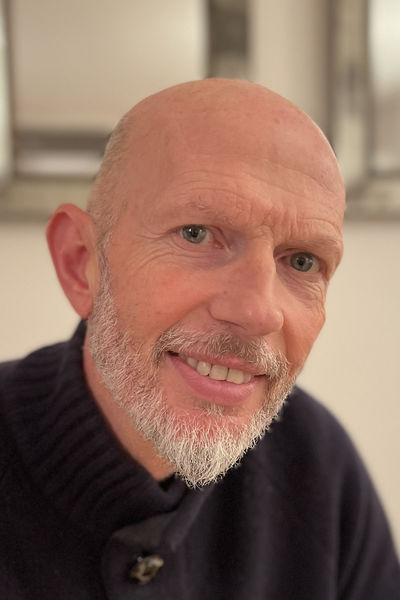Existential Therapy
What is Existential Therapy?

As existential therapists we work with you to deepen your understanding of your life and how you experience it. Together we will attend to the phenomena that become apparent as having significance in your life, we will use a phenomenological form of enquiry to broaden and deepen the possibility to describe them and consider what they might mean either contextually or uniquely to the way in which you approach and are engaged in living.
Existential therapy is influenced by philosophical thinking from the greatest philosophical minds across millennia. Whilst times change major concerns around what it means to be human prevail, these include mortality, loss, our unique experience of our world through our individual senses, health, relationships, culture, what we do with our time and our spirituality.

While some Existential – Phenomenological Counsellors and Psychotherapists work exclusively through the medium of Dialogue – what is commonly know as talking therapy – many others incorporate wider experiential practices and techniques, such as Mindfulness, Meditation, Focusing and / or Body Work Exercises. There are however, a number of characteristics that distinguishes the Existential approach from other modes of therapy.
As with its philosophical history, Existential – Phenomenology takes the human condition in all its wondrous manifestations as the focus of investigation. Existential – Phenomenology emphasises the unfolding nature of human experience and brings a curiosity to what it means to be human. Its aim is to reveal the way in which each individual comes to understand and construct his or her particular way of being – the way in which we create our own lives and selves by the way we live and come to understand the world. One of the key aims of Existential – Phenomenology is to facilitate a process of reflection and description that reveals with ever more detail and clarity the meaning that arises from our lived experience. We are not trying to merely explain ‘why’ things happen to be the way they are, but instead to describe ‘how’ we find ourselves to be – the process with which we involve ourselves.
Another key element of Existential – Phenomenology, as an approach to therapy, is that it emphasises the fundamentally relational aspect of being human – we seek to understand the ways in which as individuals we relate both to ourselves, others and being in the world in general. In exploring our relationships we also explore the way that everything we do is dependent on the context of our lives and the environments we inhabit along with others.
Existential – Phenomenology calls attention to the hidden processes that occur between people – the intersubjective nature of our relationships. It may also explore the nature of the anxiety we experience as we face our lives – as might the limits to what can be known for certain in our lives. As such, Existential – Phenomenology endeavours to understand the way we come to construct an understanding of the world – our worldview.
Existential – Phenomenological Counselling and Psychotherapy is open to the exploration of our sense of ethics, morality and issues of human freedom and facticity – the limits of human freedom. The process of Existential – Phenomenology explores the horizon of our possibilities and seeks to uncover our individual potential – it challenges us to make the most out of our lives by facing the defining choices that lay before each one us.
Existential – Phenomenological Counselling and Psychotherapy is often seen as challenging the assumptions made by mainstream therapeutic models – in particular the rationale and usefulness of diagnosis. The Existential – Phenomenological approach considers the problems that we encounter as human beings as not necessarily being indicators of potential ‘mental illness’ or of ‘symptoms’ that need to be removed, but rather as a consequence of the difficulties we face with living. As such, Existential – Phenomenology embodies both a systemic as well as a constructionist approach – in that it seeks to engage people in dialogue with the aim of describing, revealing and relating specific phenomena that are experienced in particular context, to those experienced in the global lived context. In doing so the process works at revealing the meaning that is inherent in our lived experience.
There is a basic assumption to all therapy that states that there are good reasons for the way people adapt and behave as human beings in the face of difficult, challenging and traumatic experiences – even when initially the thoughts and behaviours can seem nonsensical, self defeating and even destructive. Another assumption being made in therapy is that there is something we can learn from the process of reflecting upon both our individual and shared experience of existence – of the way we encounter ourselves, others and the world that we inhabit.
In stripping away what is taken for granted, that we can begin to reveal the assumptions that underlie our most dearly held values and cherished belief systems. Existential – Phenomenological Counselling and Psychotherapy provides the valuable opportunity of uncovering the contradictions, discrepancies and paradoxes that we experience in our everyday lives. With increased clarity and insight it is reasoned that we are better equipped to face and resolve the problematic issues we experience in our lives – and be able to consciously embrace the lives we want to live.
Existential – Phenomenological Counselling and Psychotherapy explores the way we encounter issues of our own freedom and examines the role of personal choice within our lives. For example – Do we as individuals consciously and intentionally choose the things that we are either passionate or fearful of – or do we choose with our feet, sleepwalking unconsciously into our respective futures. Existential – Phenomenology explores fundamental issues of isolation and loneliness that is experienced in life, together with the overarching certainty of our physical death. Through Existential – Phenomenology we explore the potential that life can hold even in the most difficult of circumstances. Existential – Phenomenology is used to explore every aspect of human life – ranging from the finite experience to our infinite perceptions of perfection and eternity.
Existential – Phenomenology has much in common with many ancient practices, such as Buddhism and Taoism, that incorporate the practice of Mindfulness as a way of becoming more present and receptive – an aspect of Therapy that has seen a prolific rise in popularity, particularly within therapies that originate from within the natural sciences – Cognitive Behavioural Therapy (CBT) is a more recent example. However, Existential – Phenomenology is an organic process, one that is able to adapt responsively to the particular therapeutic needs of the individual, whether that is for short-term or longer-term therapy.
If you are looking for a therapeutic approach that engages with and challenges you to explore and reflect on your personal history, your way of being and your personal philosophy of life – Existential– Phenomenological Counselling and Psychotherapy can provide an effective way forward.
Source: with thanks to the Society for Existential Analysis
Read our articles here:
Feeling lost? What happens if you think philosophically?
Further Existential Therapy Assistance
If you require further assistance regarding our Existential Therapy Services either Contact Nicholas Rose & Associates using the Enquiry form here below or please telephone 020 8996 9551.
Therapists Specialising in Existential Therapy:
Same Day Appointments
We can offer same day appointments for our services.
Call us now on 020 8996 9551
Review
I just wanted to thank you for your help last year working with me through my issues. Seeing you and talking to you really made a big difference





